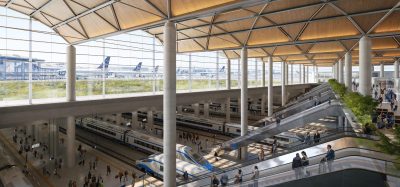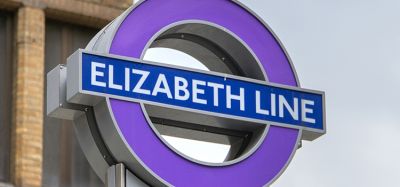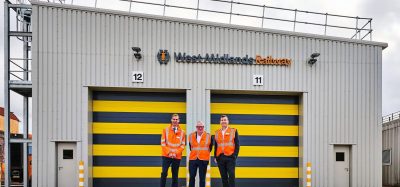Q&A with RIA’s Darren Caplan and David Clarke: Priorities for UK rail
Posted: 9 November 2022 | Craig Waters (Editor - Global Railway Review) | No comments yet
At InnoTrans 2022, Global Railway Review’s Editor, Craig Waters, met with the Railway Industry Association’s (RIA) Chief Executive, Darren Caplan, and Technical Director, David Clarke, to discuss the priorities for UK rail project delivery, the positives in digital transformation, the RailDecarb21 Campaign success, and moving forward with EDI in the industry.
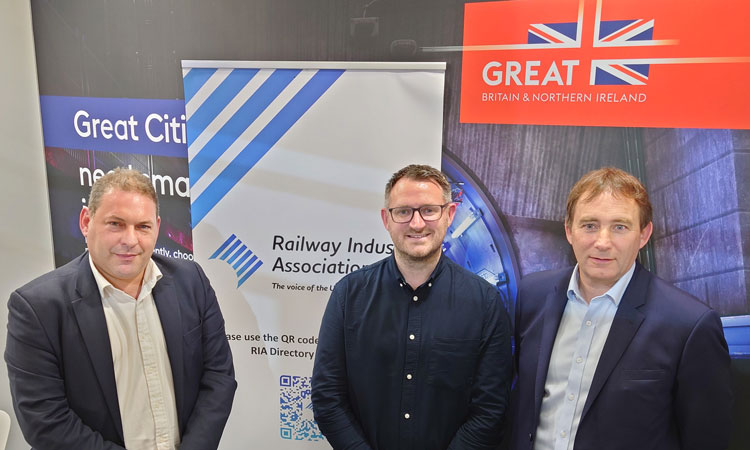

L-R: Darren Caplan, Craig Waters, David Clarke
Why is being at an event like InnoTrans so important for the Railway Industry Association (RIA) and those in the UK rail supply chain that you support?
Darren: InnoTrans gives us a great opportunity to demonstrate how we are supporting UK trade and exports of rail goods and services. It is important that we fly the flag for our members, and our two pavilions give them a great opportunity to not only market their services on a wider scale, but to also learn about the international opportunities available.
The networking at InnoTrans is also so valuable as it allows us and our members to meet new people and share information and intelligence; something that’s important to allow our sector to grow.
We also facilitate several ‘tours’ during InnoTrans where our member companies can really make the most of being present to demonstrate what they can offer the industry.
We also organise our reception at the British Embassy in Berlin during every InnoTrans, which is a great opportunity to build bridges with the Department for International Trade (DIT) and a valuable way for our members to be present alongside the UK government to promote UK rail abroad.
RIA recently set out six key priorities for the UK government to support the future of UK rail; one of them was about committing to deliver major rail projects. Can you explain more about what you want them to do?
Darren: The UK is really good at delivering major projects, but there is always controversy in discussions about how quickly these projects are delivered. If we take London’s Elizabeth line, for example, it shows you what can be achieved; it has become a real flagship project and its success has been celebrated around the world.
The delivery of the HS2 project, however, is a little different. The route plan has changed so many times and now there’s even talk about whether it will go from Birmingham to Manchester. These kinds of conversations shouldn’t be happening once political decisions have been made. Once cross-party support is given, we must get on and build it. The full benefits of schemes like HS2 can only come to fruition if the whole scheme is built and we will continue lobbying for the full scheme.
Darren: The UK is really good at delivering major projects, but there is always controversy in discussions about how quickly these projects are delivered.
A lot of work has also already been done for future schemes such as Crossrail Two, but planning on them has stalled, so there’s a whole variety of major projects worth billions of pounds and thousands of jobs, but the time it takes to make political decisions hinders progress.
Let’s also not forget the government’s Rail Network Enhancements Pipeline (RNEP) which sets out the approach for rail proposals that require government funding. The approach was set up to create a rolling programme of investment, focused on outcomes that provide benefits for passengers, freight users and the economy and moving government investment in enhancements away from a rigid five-year cycle. Three years ago, the government said that they would do a running update every year on the progression of these schemes; yet we have had no further announcements. It is this very lack of certainty that makes it impossible for our members to properly invest in their teams and machinery because they don’t know what works are coming up.
It doesn’t matter whether it’s major projects like HS2 or smaller enhancement projects; a bit of certainty from the government wouldn’t go amiss.
David: Major projects are extremely important to our industry in terms of activity and jobs, and our members repeatedly tell us that the lack of certainty is frustrating. If it’s bad news and there aren’t going to be any major projects, they would prefer to be told. Conversely, if projects are going to happen, they would want to know. This is not occurring, and the supply chain is suffering as a result. It doesn’t recruit people, it doesn’t invest, it doesn’t grow its business.
David: Major projects are extremely important to our industry in terms of activity and jobs, and our members repeatedly tell us that the lack of certainty is frustrating.
If the government keeps being so uncommitted to projects, then they potentially are going to be less efficiently delivered as our members cannot plan accordingly.
The RNEP is a stage gate process, so in theory something at the first stage gate is an idea that the government is thinking about, but not yet committed to. As the project goes up through the stage gate process, it gets more and more certain. As such, it’s difficult for us to understand why they can’t publish this list.
Now that we have a new government, the first thing they could do is publish the next iteration of the RNEP and commit to those major projects.
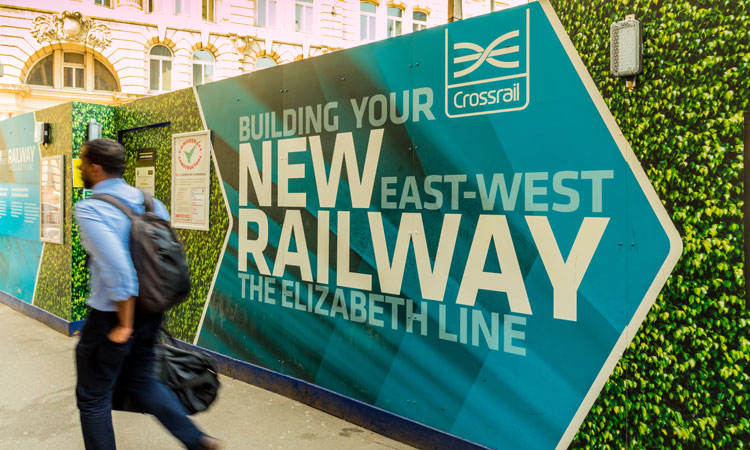

London’s Elizabeth line shows what can be achieved when delivering major construction projects.
What positives and what challenges are there in rail’s digital transformation?
David: RIA considers there to be two main areas here, namely digital signalling and improving the customer service.
There has been a lot of positives recently in terms of digital signalling. In June 2022, the Department for Transport (DfT) announced a £1 billion investment in the East Coast Digital Programme (ECDP) which will fund the roll out of digital signalling from London’s King’s Cross to Stoke Tunnels, just south of Grantham.
The collaborative nature of this project has shown the importance of engaging with all stakeholders, not just the client and supply chain, but also the end-users, the train operators and freight operators. It is an exemplar of how these major projects should be organised and we’re delighted to see it having secured its funding.
David: Network Rail’s Intelligent Infrastructure project is doing some great work. Its potential is enormous, and we would like to see it rolled out much more strongly and opened to other solutions.
We’re also looking forward to finding out the next round of signalling frameworks for Control Period 7 (CP7) which covers the five-year period from 1 April 2024 to 31 March 2029. CP7 should build on a lot of the recommendations that we made two years ago in terms of how to create a strong and vibrant market, giving the supply chain confidence to invest.
Despite there being a huge amount of capability out there in UK PLC, I think there is some way to go when it comes to how digitalisation can support the performance of the railway and improve the customer experience.
The challenge is a lack of clarity and strategy about how to deploy technology and how to use those opportunities. We’re tending to see things being deployed in penny packets, so they’re not getting the critical mass that would drive real benefits.
However, on the performance side, Network Rail’s Intelligent Infrastructure project is doing some great work. Its potential is enormous, and we would like to see it rolled out much more strongly and opened to other solutions.
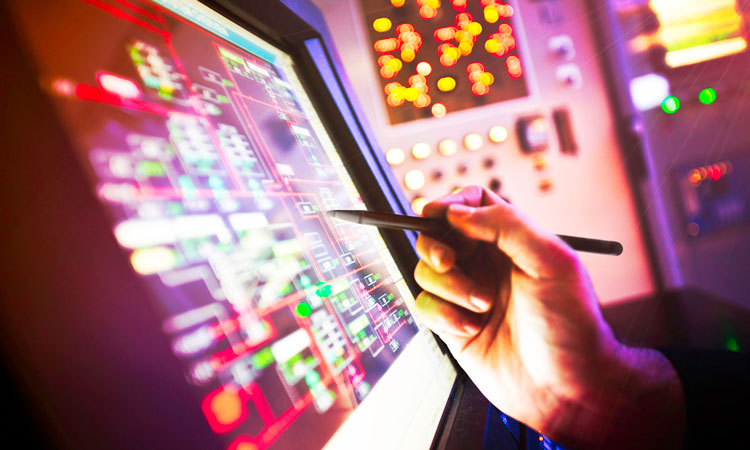

The East Coast Digital Programme (ECDP) will fund the roll out of digital signalling from London’s King’s Cross to Stoke Tunnels. Credit: Network Rail
One of RIA’s many initiatives is the RailDecarb21 Campaign; can you tell us more about that and why it is important?
Darren: We clearly can play a role in decarbonising the railway and the benefits it brings to our society. So, we decided in 2021 to start a campaign on how we can effect that change in the railway industry.
RailDecarb21 was a lobbying campaign to promote to government the idea that we need more support for a rolling programme of electrification, and more support for battery and hydrogen traction trains in less intensively used parts of the network.
Darren: We clearly can play a role in decarbonising the railway and the benefits it brings to our society.
I think RailDecarb21 has been successful in the sense that we’ve lobbied and the government’s communicated they will take this forward in their transport and decarbonisation plan. However, a lot more work needs to be done because it’s not going to the places that it needs to. But as a campaign, it was successful at elevating the issues that we can do in rail and deliver on decarbonisation. The goal is to have decarbonised rail by 2040 and this is a start.
David: The transport decarbonisation plan was very positive because it picked up the messaging that we were highlighting as key; a rolling programme of electrification, and fleet orders of battery and hydrogen trains; with those being both a permanent solution on some less intensively used lines and also an interim solution as you roll out electrification.
But we’re not seeing the deployment. The mood music seems to be that we’re not going to see a ramp up in electrification volumes until CP8, so 2029 and beyond. Obviously, we welcome the fact that there’s the commitment to electrify the Midland Mainline and the TransPennine Route Upgrade, but it’s not the volume that we would need to deliver the decarbonisation goals.
We’ve calculated that 400-450km of electrification upgrades need to be delivered every year, starting now, to be decarbonised by 2050. The Midland Mainline and the TransPennine Route Upgrade are significant, but they won’t reach that volume. Therefore, we’re falling behind and risk missing 2050.
David: We’re [also] concerned about the delivery of other innovations to improve the efficiency of existing diesel fleets or deploying battery and hydrogen. We’re not yet seeing any firm strategies around these.
We’re also concerned about the delivery of other innovations to improve the efficiency of existing diesel fleets or deploying battery and hydrogen. We’re not yet seeing any firm strategies around these.
For example, when the operator Northern won their franchise, it held a commitment to deploy battery and hydrogen trains; they haven’t been able to do that yet. We should be looking to save every kilogram of carbon we can as soon as possible, because if we’re trying to save the planet, why wait?
Darren: The government is always concerned about the cost of electrification. If you compare us with Germany, part of the reason why the levels of cost are not the same is because we don’t have that pipeline of electrification schemes, which means that you can deploy your resources on an ongoing basis. We’re massively different compared to other successful countries that have a boom or bust approach on electrification.
Equality, diversity and inclusion is important for the industry; what would you say has to be a priority here to make a real change?
Darren: In 2020, RIA and Women in Rail launched the EDI Charter and by this year we’ve got to 195 signatures. We’re now pushing to get 200 signatures, and those who sign up to it – from major companies down to SMEs – are committed to a range of things to help the EDI agenda.
Darren: It’s important to appoint someone senior within a company to be an EDI champion. It’s about going to relevant events and learning and sharing best practice on how you can increase the talent pipeline in the workforce.
It’s important to appoint someone senior within a company to be an EDI champion. It’s about going to relevant events and learning and sharing best practice on how you can increase the talent pipeline in the workforce. It’s reporting back annually on progress being made. It’s a very positive agenda on what’s being done and how can we learn from each other.
The biggest challenge comes in not only increasing the talent pipeline and ensuring people from a wide variety of backgrounds apply for roles in the industry, but also retaining them and keeping them moving to different roles within the industry.
David: I think the platform for improving the EDI signature of the industry is having the confidence to increase our talent pool which will therefore grow our industry. This relies upon better visibility of the opportunities that are ahead of us, because in the absence of that, organisations don’t invest in people.
Transport for the North recently published a report highlighting that the social deprivation in their region of the UK is driven by a lack of access to transport. I think sometimes this aspect is forgotten. So, the win-win to rail investment is improving public transport to give access to work for people in those areas with poor transport access.
Darren: EDI campaigns should be positive ones and not about setting quotas or targets. They should be focused on helping companies to understand how they can make changes and help them to increase diversity and inclusion.
What do you hope to learn and take away most from being at InnoTrans this year?
Darren: Despite the cost-of-living crisis and potential recessions, the view of those we’ve spoken to attending InnoTrans has been positive about the future of the rail industry. We’ve learnt about schemes all around the world that need RIA members and companies to invest in them.
Darren: Despite the cost-of-living crisis and potential recessions, the view of those we’ve spoken to attending InnoTrans has been positive about the future of the rail industry. We’ve learnt about schemes all around the world that need RIA members and companies to invest in them.
UNIFE’s latest World Rail Market Study has showed that the global market is set to increase by three per cent every year to 2027. That’s worth about £185 billion. This is quite remarkable given the impact of the pandemic, and so for me, I will go away from InnoTrans with an overwhelmingly positive outlook.
David: There is a lot of common ground in terms of the challenges that the different railways around the world are trying to fix. It’s clear to me that the UK supply chain is holding its own. Just looking at the scale of the exhibition, you can see there’s a very vibrant worldwide market, so the UK supply chain must work to maximise on those opportunities.
Stay Connected with Global Railway Review — Subscribe for Free!
Get exclusive access to the latest rail industry insights from Global Railway Review — all tailored to your interests.
✅ Expert-Led Webinars – Gain insights from global industry leaders
✅ Weekly News & Reports – Rail project updates, thought leadership, and exclusive interviews
✅ Partner Innovations – Discover cutting-edge rail technologies
✅ Print/Digital Magazine – Enjoy two in-depth issues per year, packed with expert content
Choose the updates that matter most to you. Sign up now to stay informed, inspired, and connected — all for free!
Thank you for being part of our community. Let’s keep shaping the future of rail together!
Related topics
Crossrail/Elizabeth line, Digitalisation, High Speed Two (HS2), Infrastructure Developments, InnoTrans, InnoTrans 2022, Signalling, Control & Communications, The Supply Chain, The Workforce, Women in Rail
Related organisations
Department for Transport (DfT), InnoTrans, Network Rail, Railway Industry Association (RIA), UNIFE (the European Rail Supply Industry), Women In Rail



